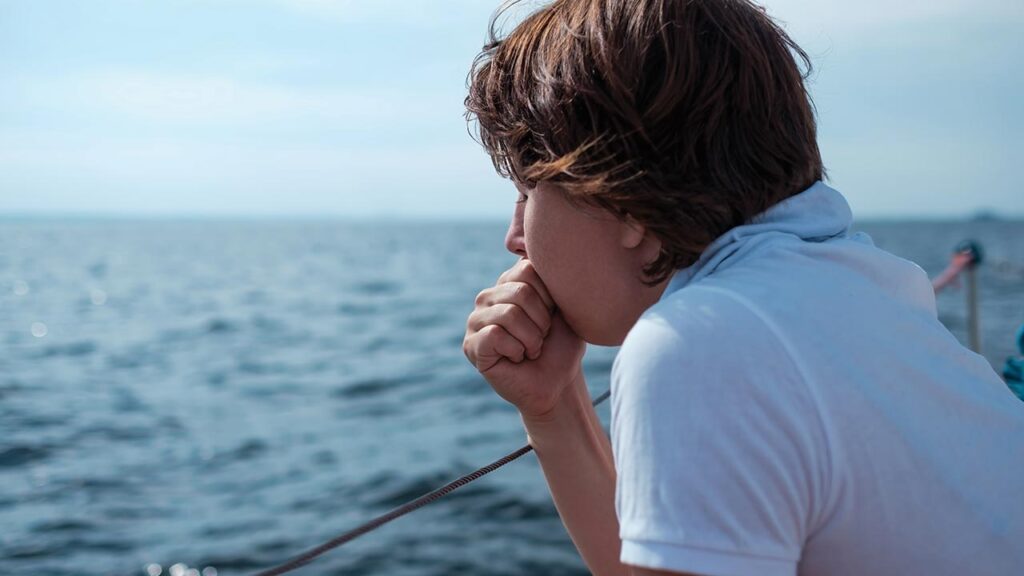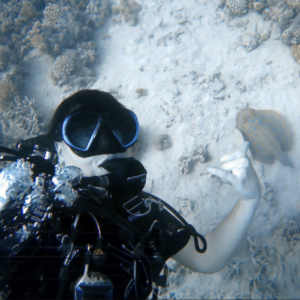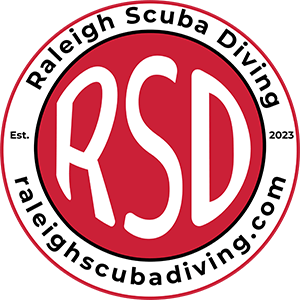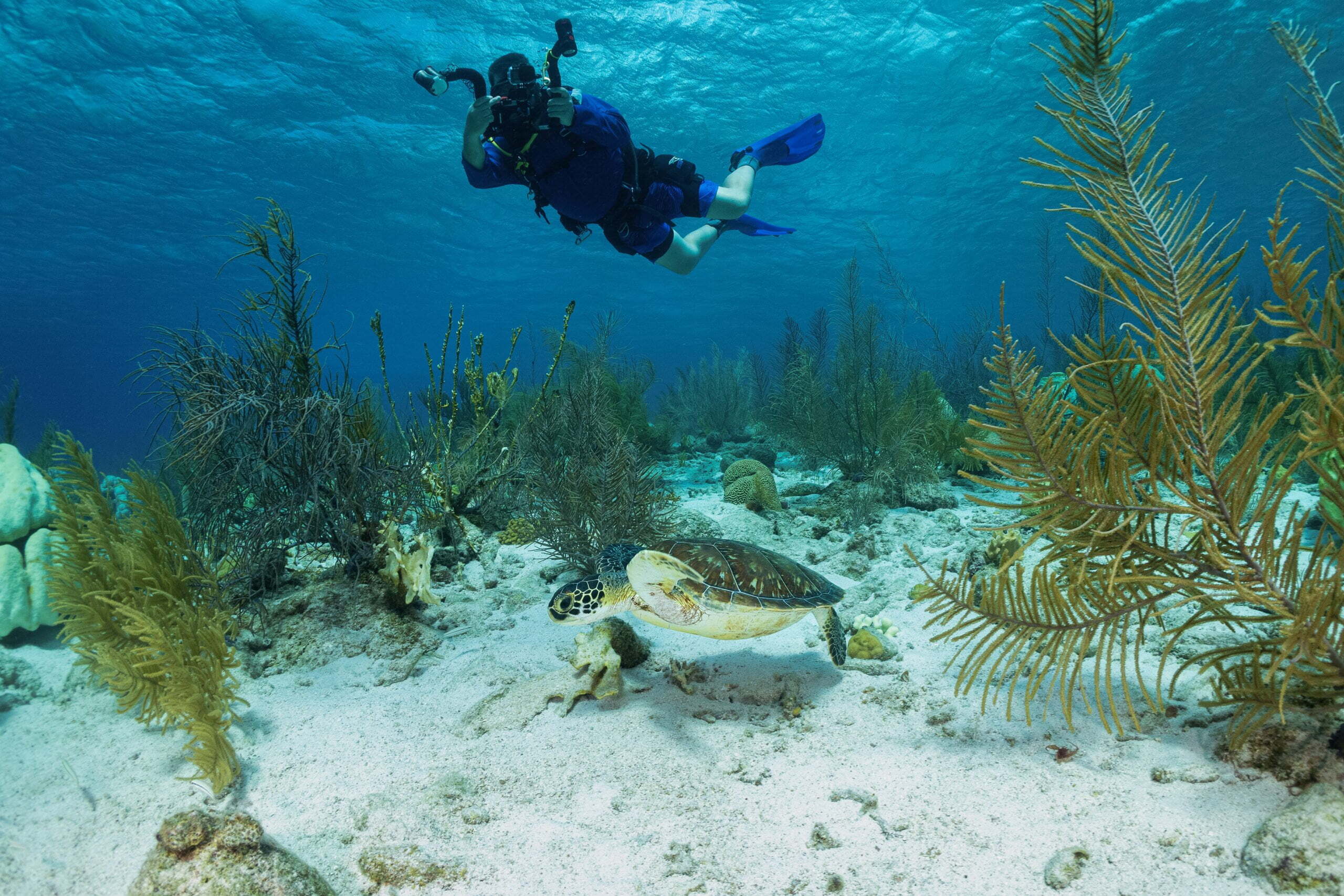
Yo Ho Ho and a Bottle of HURL!
Dive Charters are an excellent way to access amazing dive sites. On board you get to meet new divers, enjoy the sea breeze, swap great stories, talk scuba gear, and ugh.. did someone just vomit?
YEP! That was me on my first trip on a dive boat (the one feeding the fish). One of the few downsides of boating to a dive site is the possibility of getting seasick. Most people experience symptoms of seasickness to some degree, so it is nothing to be ashamed or embarrassed of. Even seasoned mariners can still experience sea sickness! Below we talk about what causes sea sickness, what the symptoms are, and some tips to try and minimize its effect.
What Makes People Seasick?
Sea Sickness is a form of motion sickness and happens when your brain gets way too many mixed signals from your senses… it’s not you, it’s them. It starts with your equilibrium gets wonky. Your sense of balance is controlled by the Vestibular System located in your inner ear. It consists of semi-circular canals that are filled with fluid and 2 sacs called the saccule and utricle. The fluid moves around in the canals as you turn your head and the sacs sense gravity. Together the Vestibular System tells your brain if you are up or down or shaking it all around. So, when you are riding the waves on the seven seas, your inner ears are reporting balance one way, your muscles are reporting movement the other way, but your eyes might not see anything moving at all. What does your brain do with all these mixed messages? It has a nauseating mental meltdown, which makes you seasick. The good news is that it does not last forever, and most people recover in a few hours to, in very extreme cases, a few days.
Signs You Are Getting Seasick
Knowing the signs of seasickness can help you stay ahead of the nausea and dizziness to reduce their severity. The most common signs are:
- Producing more saliva
- Shallow breathing
- No appetite
- Dizziness
- Nausea
- Vomiting
- Headache
- Fatigue
- Pale skin
These symptoms may seem relatively harmless, but they can lead to excessive dehydration and if not treated, severe cognitive decline. If you are feeling seasick it is important to try and stay hydrated and let someone know how you are feeling. You do not have to suffer alone!
How To Avoid Seasickness
After a few days most people will adapt to the rocking of a boat and sea sickness will go away. However, if you are only taking a day trip on a dive charter, there is little time for your body to find its sea legs. There are many options available to reduce or even prevent sea sickness and each have their own benefits and drawbacks.
Refrain from large meals
As silly as it sounds, having a full stomach on a dive boat can magnify the queasy feeling you get when the boat gets to rocking. Many divers refrain from eating at all or have something very light (banana, granola, etc). We recommend avoiding dairy, eggs or spicy foods as those seem to magnify the seasick feeling. Of course, your mileage may vary but easily digestable foods seem to stay down better.
Acupressure
Some people respond to of acupressure. Just below the wrist, between the two tendons, is a pressure point. When pressure is applied to the area it can help reduce or relieve nausea. Some divers use a wrist band with a large bead attached to it to apply continuous pressure to the area (Sea Bands are a popular & inexpensive brand). There are also wrist bands, like ReliefBand, that use vibration to stimulate the area to reduce nausea.
The major pro of these wrist bands is that they do not use any medications and are non-invasive. The major drawback is that they require continuous pressure which can be uncomfortable, and they may slide off the pressure point.
Calming Herbs and Spices
Many divers swear by certain herbs or spices to help reduce their sea sickness. Ginger is a common spice that helps reduce nausea because it contains gingerol. Gingerol benefits gastrointestinal function by aiding in the digestion of those pancakes you had before boarding the boat. No one likes feeling a heavy breakfast churning in their stomach when getting pushed around by waves. Other herbs and spices include lemon, peppermint, chamomile, cardamon, and many others.
The pro of using herbs and spices to calm nausea is the limited to almost no side effects associated with them. They are also readily available in most grocery stores. The drawback is that they can have little to no effect, and even cause nausea for some divers.
Mind Over Matter
There are some tips and tricks that help people plan for and manage sea sickness. Having a full night of rest helps prepare your mind and body for a day of diving. Before boarding the boat, it is recommended to have a light meal and avoid alcohol and greasy foods. When you are on the boat, keep your eyes on something stationary, such as the horizon or an anchored vessel. Stay in a well ventilated area away from any exhause fumes. Closing your eyes and relaxing with deep breaths can help keep you calm. Scrolling on your phone or reading can make sea sickness worse, so it may be a good time to unplug and enjoy the ride.
While these approaches can be helpful, they are most effective on calm seas with mild chop. If the boat is swaying like a southern porch rocker, you may not be able to keep your eyes on the horizon or control the feeling of rapidly moving up and down.
Medications
When natural remedies don’t quite do the trick, using over the counter and prescription medications are also an option to fight sea sickness. However, you should always consult your doctor to see what is best for you. Be sure to test whatever medication you want to use BEFORE you dive. They can have side effects, and you don’t want to find out that something makes you sleepy or loopy when you are 80ft underwater. If a medication impairs your judgement underwater, you risk having an accident. It’s best to know what to expect before you go diving.
Popular choices for over-the-counter medications are Dramamine and Bonine. Both use Meclizine HCL which is an antihistamine to treat nausea and vomiting from motion sickness. Cool science fact: the medulla oblongata is the part of your brain that controls vomiting. Located at the base of your brain, it contains the Vomiting Center which includes the Chemoreceptor Trigger Zone (CTZ). The CTZ uses histamine (and other neurotransmitters) to tell the Vomiting Center if there is a need to vomit. Since Meclizine HCL is an ANTI-histamine it reduces the ability of the CTZ to communicate. That’s how Dramamine and Bonine work in your brain! Both are easily found in grocery and convenience stores. Divers suggest to start taking it the night before a boat dive, and the day of for maximum effectiveness.
The major drawback of Dramamine and Bonine is that it can make you sleepy. Some get very tired, while others do not feel any drowsiness. It is strongly recommended to see how they affect you before diving. Both brands DO make a non-drowsy version but, again, you definitely want to take these for a test drive before going on an actual dive.
Another option many divers favor is the Scopolamine Patch. This patch does require a prescription from your doctor. They should discuss the benefits and side effects with you thoroughly to make sure it is a good choice for you. Scopolamine is a small, transdermal patch that is usually worn right behind the ear. It slowly releases the drug into your system over a period of 3 days. After 3 days, a new patch must be applied.
Scopolamine is an antimuscarinic and works by blocking the neurotransmitter acetylcholine. While it affects various areas of the nervous system, it also affects the vomiting center in your brain. Instead of blocking the center’s histamine receptors (like Dramamine or Bonine do), Scopolamine blocks the M1 (muscarinic) acetylcholine receptor. This prevents the vomiting center from telling the body it needs to vomit. With the patch on, your brain isn’t getting the signals for nausea and vomiting, which helps you have more fun at sea!
Scopolamine does affect the nervous system so its side effects are more significant than something like Dramamine or Bonine. The most common side effect is dry mouth and dilated pupils. Some divers, like me, also experience a minor effect on their eyesight where small print can become blurry up close. More serious and rare side effects are confusion, seizures, and agitation. Since the side effects can vary, it’s very important to talk with your doctor about the Scopolamine Patch and understand how it affects you before diving.
If all else fails
You’ve tried it all and, well, it’s not working. Have no fear… “Feeding the fish” is a long tradition if you are diving off the North Carolina coast. If the urge persists and it becomes “that time”, here’s a few tips:
- Figure out which is the leeward side of the boat (where the wind is blowing away from the boat, not towards it).
- The aft of the boat (the back) is generally preferred as you don’t risk spraying unsuspecting divers.
- Insure the deck is not slippery and have good hand holds. You really don’t wanna fall out of the boat.
- Most dive boats have hoses so you can wash down any misplaced materials.
- Hydrate. Yes, we know the last thing you want to do it put something back into your stomach, but a little water is needed to keep you hydrated.
Wrapping it up!
Dive Charters can take you to incredible dive sites and sea sickness doesn’t have to stop you from enjoying the trip. There are lots of ways to reduce its effects whether you prefer natural remedies or medications. Just be sure to test out whatever remedy you want to try before you go swimming with the fishes!
Let’s Go Diving!

Uriah Rex | Divemaster Candidate
Salt water is my spirit of choice




